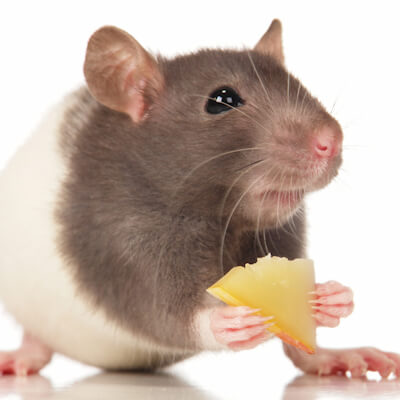You may be thinking, what sort of question is that? Why would someone consider feeding their mouse rat food? Well, desperate times call for desperate measures! If you are a parent to both a rat and a mouse you will surely find yourself in a situation as such. Being a pet parent is a hectic job. We think that raising a child and a pet is not too different, and that too a rodent pet. We understand how difficult and tiring it might be for you to wonder whether you can divide rat food amongst both your pets. You are still doing an admirable job as a pet owner. Don’t beat yourself down for looking for alternatives.
Another probable situation may also be that you are trying to save up a few dollars here and there. It is no doubt that having to buy two different foods for two animals costs a good amount of money. If that is the case, don’t fret any further. There are several ways to live financially free and still not compromise on the health of your pet.
Whatever your circumstance may be, we are going to try and put all your queries and concerns to sleep. However, for us to successfully incorporate all the information we have gathered, we will require you to read it till the end. We are sure, the love and care you have for the pet that drove you to this article will keep you seated till the end.
Differences between bodily requirements of rats and mice
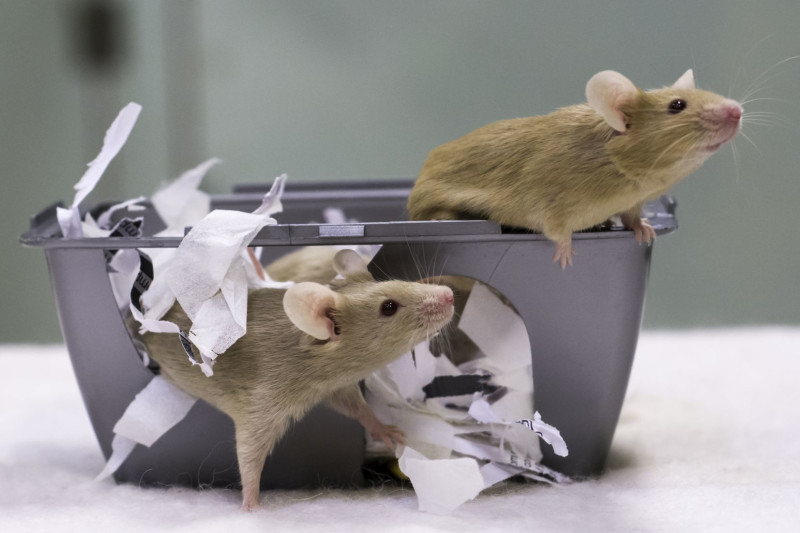
It is true that both the adorable fluffy creatures are omnivores and belong to the same group of mammals. Both the tiny beings are poles apart especially when it comes to fulfilling their food-related needs. Being a rodent pet owner you would be extremely familiar with the difference in the size of a rat and that of a mouse. A rat being comparatively bigger demands more quantity of any food. Your mouse however may survive on leftovers of its previous meal!
Additionally, both the tailed creatures incline contrasting foods (in terms of human foods). Rats often prefer to have meat, fish, and cheese on the menu whereas mice have a liking for more nutritional foods. It is likely to get baited by foods like vegetables, fruits, and nuts, etc. At the same time, an interesting fact is that meat is not toxic to mice either. In fact, at a time of extreme hunger, they wouldn’t refrain from eating another mouse’s meat either! Your pet mouse is also likely to avoid pet foods at any given opportunity, unlike rats. They will dig into a bowl of rat food without causing you much trouble at all. Such lovable creatures aren’t they?
Similarities between bodily requirements of rats and mice
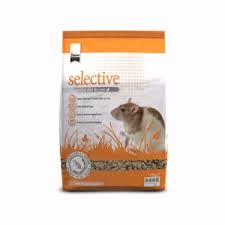
There is a huge misconception amongst rodent pet owners that there are barely any similarities between rats and mice. Aside from the fact that they are both irresistibly endearing! Without beating around the bush any further, let us have a look at the reason for comparability.
Mice and rats will both indulge in any cuisine that offers nutrition and a mouthwatering taste. And the latter remains secondary! Starting from the cheese you left on the kitchen counter to the tomatoes in your fridge, they will get a taste of everything. However, only because they get their noses to get stuck in all variations of foods provides no certainty of it being beneficial to them. Mice particularly are just as sensitive as they are adventurous. Therefore, you will have to step in and save them before they cause themselves any misery. For example, baked goodies are rarely good for rodents as they are extremely susceptible to obesity. Nonetheless, it does not stop them from digging in at any given chance.
What is rat food made up of?
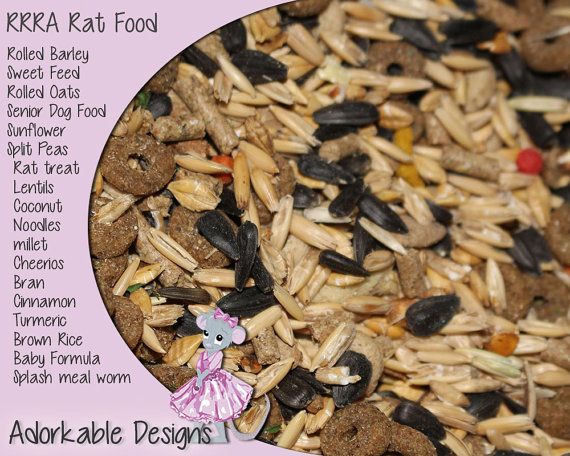
Rat food is often available and kept in the form of blocks or tiny pellets. This is done for the reason of making it easier for rats to nibble on. Rat food can be bought from any nearby pet shop or be prepared at home as well.
To meet the nutritional requirements of a rat, it is prepared using ingredients that are rich in supplements and minerals. Usually, it consists of fruits and tasteful berries as well as other mixtures of seeds and vegetables. A specific amount of wheat is also added for healthful reasons.
Furthermore, it should be kept in mind that commercial rat food alone is not capable of fulfilling their needs. A list of essentials are;
- Essential amino acids
- Vitamins
- Minerals
- Fatty acids
Whereas, as a pet parent you should be well aware of the foods that can cause poisoning in a rat. You may find these foods to be extremely nourishing but in reality, they would be performing the exact opposite task. For you to avoid and remember these edibles, we have listed them below;
- All citrus fruits
- Onions
- Chocolates
- Grapes
- Raisins
- Walnuts
You can thank us later!
Can a mouse eat rat food?
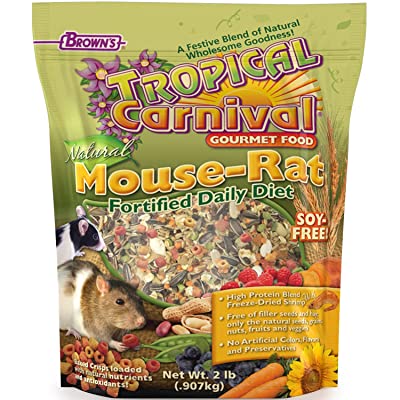
Now that you have crammed all the information, let us get to the bottom of the discussion. Mice can eat rat food. It will not be harmful to your pet mouse in any way possible. However, it should not be incorporated into their diet as a replacement for all other foods altogether. It is integral to feed them all foods that they prefer or are essential for them. This will make your adorable little mouse happy and healthy!
Do mice like rat food?
To put this simply, mice like everything edible – including rat food. Since rat food is made of several ingredients it is full of flavor. If you feed your mouse rat food it will get used to it quickly. It might even be difficult for you to bring it back to eating its usual diet. Similar is the case with junk food. If a mouse gets its tiny paws on junk food once, it will refuse to nibble on any other food. They may be small in size, but it would be a sincere mistake to underestimate their strong will!
An important note
Although conventionally mice are not vulnerable to diseases and other bacterial infections, it is always better to be safe than sorry. Similar to human beings and other living creatures, their immunity systems differ greatly. All fingers are not the same! Where one mouse might be able to tolerate a detrimental food item, the other might be the exact opposite. It will easily fall victim to the harshness of e.g. rat food and develop gastrointestinal indigestion. What may one do to circumvent such a scenario? Don’t worry we have just the solution you need. While introducing a new delight or meal in your mouse’s diet, you should incorporate it in minimal quantity. Consequently, for a period of a few hours or days observe the behavior of your pet. If there is any minor indication of uneasiness or sickness, immediately contact your vet and ask for advice. However, if your pet’s luck is bright and the sustenance is free of any negative side effects, you are free to feed it once in a while. Additionally, we suggest you imply this for all animals that you pet. If not anything else, it will surely eliminate at least a 40% risk of your pet getting sick. What more could a pet parent ever ask for?
